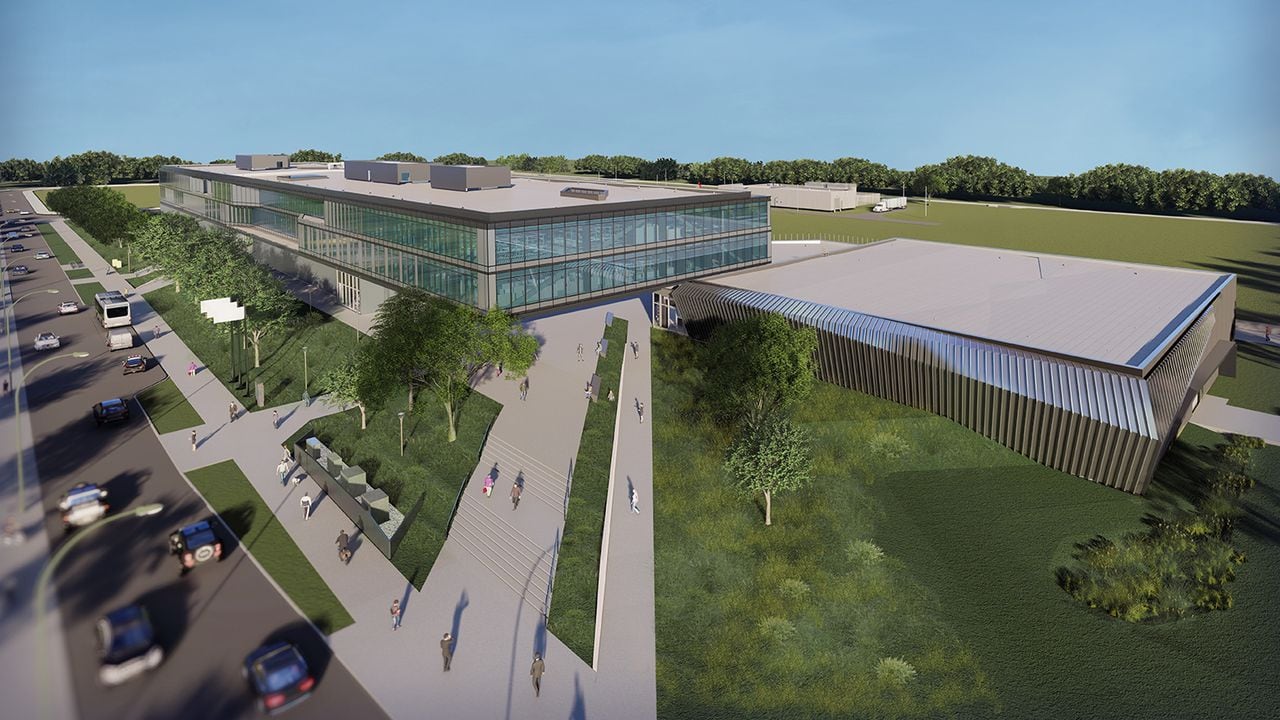FBIâs mission at â2nd headquartersâ still growing in Huntsville
The status of the FBI’s growing campus on Redstone Arsenal these days is told best in numbers, not words.
- 1,985: The number of FBI employees currently working at the Army post in Huntsville
- 3: The number of buildings currently under construction, including the Innovation Center expected to open in the spring of 2024
- 5,000: The capacity for full-time employees by the end of the decade (and doesn’t include the capacity for 3,800 law enforcement employees from across the country to attend training)
Or, to use words, the FBI’s momentum rolls on as it continues a years-long plan of expanding its footprint in Huntsville.
“We currently have 20 out of our 30 FBI headquarters divisions that have a physical presence on Redstone Arsenal,” said Johnnie Sharp, the FBI’s senior officer in Huntsville. “So to say that it’s anything other than our unofficial second headquarters would be an understatement.”
Speaking Wednesday at the annual Redstone Update — a half-day of presentations for business and community leaders about work taking place behind the gates by various agencies and commands at the arsenal — Sharp went beyond the bricks and mortar of FBI Redstone and delved into the bureau’s mission in Huntsville. It perhaps revealed a maturation of FBI Redstone, going beyond the novelty of such a high-profile agency commanding such a high-profile role at the arsenal and spotlighting the vision behind the project.
“FBI Redstone supports the key development of FBI employee skill sets needed to complete our mission, not just in the U.S. but around the globe, ensuring our people are ready to meet whatever real world demands they may encounter,” said Sharp, who is the assistant director of the IT Infrastructure Division at the FBI’s campus in Huntsville.
At least four buildings are already completed and occupied on the FBI’s North Campus. The anticipated completion of the Innovation Center will be a significant addition to the campus, Sharp said. The facility’s importance was perhaps underscored by the fact that FBI Director Christopher Wray attended its groundbreaking in 2021.
“The Innovation Center, this is going to be a real wild moment for us here in the FBI,” Sharp said. “It will provide space dedicated to training, cyber threat intelligence, digital forensics, and analytical tool development. We understand 21st century threats are rapidly changing and evolving, which requires us not only to be well trained, but better prepared to defeat them.
“The Innovation Center will be the epicenter of the FBI’s technology, infrastructure and tool development, centralizing our tech talent and tools in a connected campus environment. Once this building comes online, our goal is to not only utilize this space for training purposes, but also have an increased focus on collaboration with internal FBI employees, partners within the intelligence community, industry partners and academia.”
That’s quite a description for a building yet to be completed but it’s also where the FBI will not only look into the future to anticipate threats to national security but also prepare to combat those threats.
“The FBI recognizes next generation threats require next generation assets,” Sharp said. “Creating, fostering, training on and enhancing our mission with those assets is what the Innovation Center is all about. Within the Innovation Center is a 22,000 square foot Kinetic Cyber Range, what we refer to as the KCR, which will offer a cyber training capability that is both realistic and collaborative, equipping our workforce with the data tools to safely and effectively execute the mission. This space will offer in-house training, as well as distance learning from the virtual reality classroom and is designed to house customized technical tools so we can train against the latest threats.
“The experience will be unmatched — offering the students the ability for live viewing, real time evaluation, recording and playback to not only train, but analyze the training in real time and to learn from it. I don’t have to tell you that technology is constantly evolving. From a digital technology perspective, our goal with the work to be completed in the Innovation Center is to address current and future cyber threats and data exploitation.”
